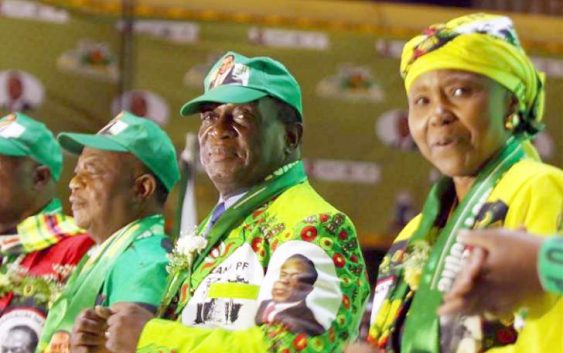- WICKNELL CHIVAYO left school at 15
- DISGRUNTLED Zimbabwe police stage uniform protest.
- MNANGAGWA wife Auxillia drops charges against nine women who boed her in Manicaland
- O.J. Simpson dies of cancer , aged 76.
- South Africa ANC is the cause of ZIMBABWE troubles claims Zimbabwe opposition politician Job Sikhala
ZIMBABWE DOLLAR CHAOS: A loaf of bread costs US$1-ZW$9 999 up from ZW$2 800

By close of business on Thursday, soldiers, police, health workers and other civil servants in Zimbabwe went home with the reality that their salaries could barely buy 30 loaves of bread.This after the government liberalised the exchange of the Zimbabwean dollar against major currencies.Zimbabwe Teachers’ Association acting secretary-general Goodwill Taderera said the only logical thing to do would be to pay them in US dollars.”We just don’t know why they are moving away from a stable currency, the US dollar. Whatever economics he [Finance Minister Mthuli Ncube] is using, it’s just not working,” Taderera said.A currency shock on Wednesday saw the Zimbabwe Stock Exchange twice stopping trade after an increase in share prices as the local dollar took a beating.Steve Hanke, a professor of applied economics at the Johns Hopkins University in Maryland, US, warned that “if this keeps up, Zimbabwe is on track to reach hyperinflation in five days”.A loaf of bread on Thursday cost ZW$9 999 or $1, up from ZW$2 800.According to the World Bank, Zimbabwe has, for the past few months, had the fourth-highest food inflation rate in the world (102%), behind Venezuela’s 466%, Lebanon’s 352% and Argentina’s 115%.Some scales even put the country second to Venezuela.Ordinary Zimbabweans shared mixed views about the domestic dollar.”We are back to 2007/08; it’s bad,” said James Ndlovu, a former biology teacher who’s now dabbling with forex trading and other side hustling.His description is not necessarily accurate; in 2008 there were empty shelves in grocery stores. This time around shops have basic commodities, but prices are forcing people to buy from street vendors who accept US dollars and rands only.Either way, Ndlovu says, “it’s survival of the fittest; natural selection”.The Zanu-PF supporter believes there’s a hand behind the free-fall of the Zimbabwean economy.”Since the Gold Mafia (the Al Jazeera documentary, The Gold Mafia: The Laundry Service), things have been tightening. I think somehow it’s linked. It’s a pity that the party I support slips up when it comes to the economy,” he said.Christmas Ncube, who operates on the same pavement as Ndlovu in Bulawayo, the country’s second-largest city, has other views.”It has nothing to do with external forces; vakomana [the guys] are clueless. When the finance minister joined this government, he promised to do away with bad money [the local dollar], but what did he do? He kept it and life went on. You can’t run an economy using betting odds,” he said.Zimbabwe is set to hold its general elections on 23 August, and former finance minister Tendai Biti, a senior member of the opposition Citizens Coalition for Change, says the bread scenario has proven that “this election becomes the most important of our lifetimes”.”The thing about the economy is that it has no respect for propaganda or hijacked liberation narratives. It does not care whether you have guns or tanks. It will humble you.”Critics say the opposition is not doing enough to capitalise on the economic meltdown ahead of the polls.Source – news24.